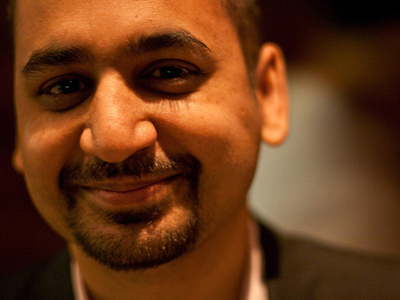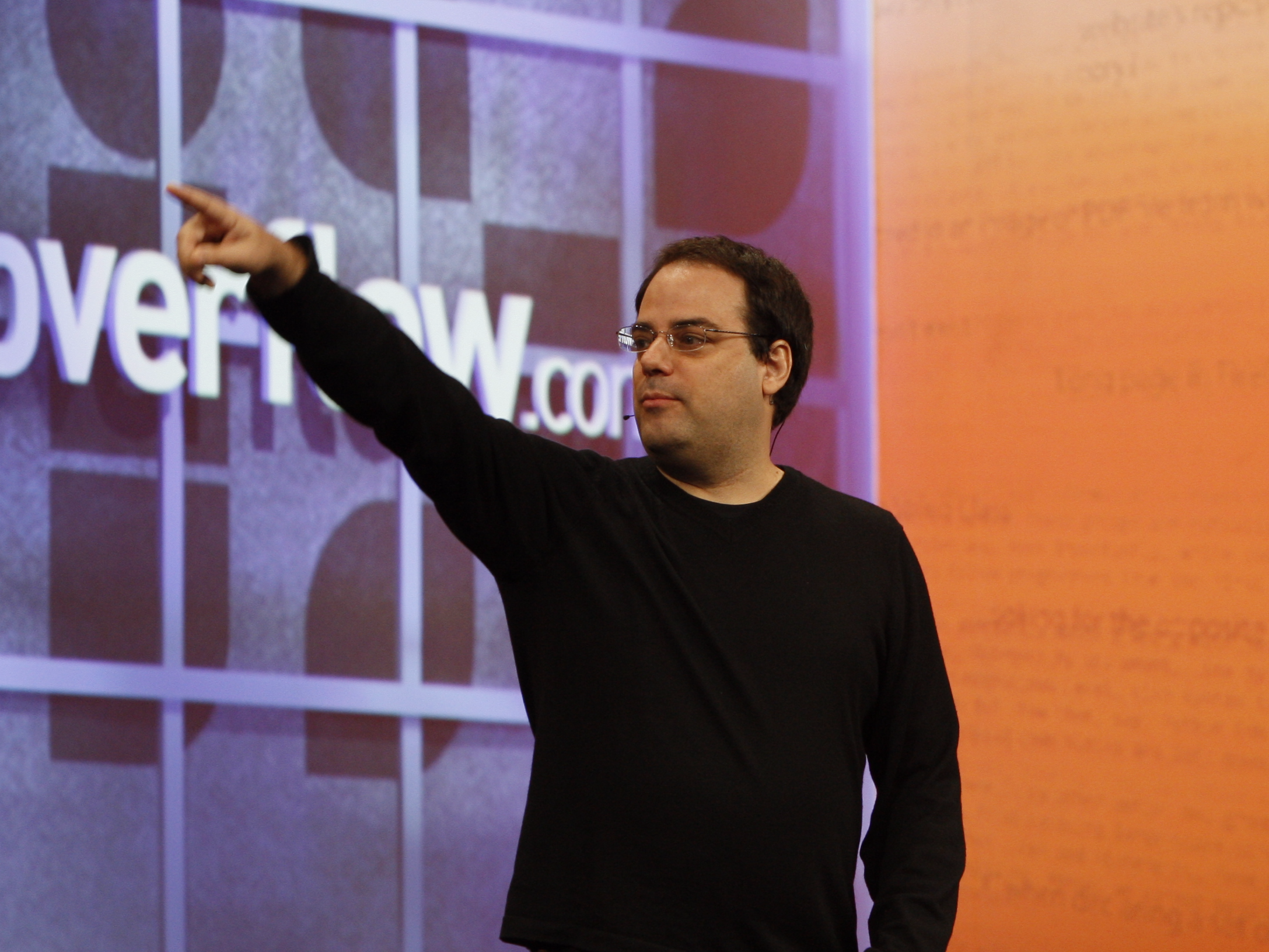Joel Spolsky was blogging before it was called “blogging.”
Back in 2000, Spolsky was the founding CEO of Fog Creek Software, a startup that got its beginning building tools for software developers. He began writing his thoughts about running a company, working for and competing against Microsoft (he was on the Excel team back in the 1990s), and other topics of interest to the programming community, in a space called “Joel on Software.“
Some of those posts got a million readers or more, Spolsky tells Business Insider.
Even more than a decade later, they’re fascinating and useful for anybody in tech startups – my favorite, “Fire and Motion,” takes a lesson Spolsky learned in the Israeli army and applies it to startup productivity – but Spolsky has moved far beyond blogging.
In 2008, he and business partner Jeff Atwood leveraged Joel on Software’s popularity to create a Q&A site for developers, Stack Overflow, which quickly grew to prominence thanks to the relevance of its answers (and subsequent high placement in organic search results on Google). They expanded that product into the Stack Exchange Network, which includes other Q&A sites, as well as job-hunting tool Stack Overflow Talent.
That network now gets more than 100 million visitors a month, says Spolsky, but the most remarkable part is that they're completely free of the trolling, hate speech, and other deplorable behavior that plagues almost every other large online community, from Reddit to Twitter to every single website's comments section.
How did Spolsky do it? By paying attention to history and actually trying to learn from the mistakes of his predecessors. As he put it:
"Long before I started Stack Overflow I read this post by Clay Shirky called A Group is its Own Worst Enemy....He investigated early online communities, forums, and discovered that everybody that built one of these communities or was involved in it observed the same thing, which is the community starts out great when it's small, but at some point the bored teenager wanders in or the first troll, and then these communities all exhibit the same problems when they get larger. To his chagrin, they would all write essays and academic papers about what went wrong with their community and the only thing that these papers showed clearly is that they hadn't read all the previous papers by all the other people that tried to build online communities and observed the exact same thing. So they were pretending that they had just discovered America when there were already 30 other papers in the literature of that exact syndrome."
With Stack Overflow, Atwood and Spolsky built in rules from the beginning to prevent the site from being destroyed by trolls or spammers. For instance, they instituted something called the Penalty Box: if a user exhibits bad behavior like spamming the site with the same question over and over again, or gets a lot of complaints, or even just shows no interest in learning or improving, they're suspended from being able to post on the site. If they keep it up, their account is deleted.

Earlier this month, Fog Creek hired blogger and online activist Anil Dash as its CEO in part because of his work helping Stack Overflow maintain its compass:
"One of the things I love about him is that he is very dedicated to social justice in software. He's been on the board of Stack Overflow for a long time and Stack Overflow has never had a hate speech problem."
Spolsky will remain CEO of Stack Overflow, which now has 300 employees.
Silicon Valley and the squishy, icky problems of morality
So why do so many other online communities miss the mark?
Spolsky took the example of Twitter, which tries to have it both ways: on one hand, it's making editorial decisions regularly, like which user accounts to verify, but it's also pretending to be a completely value-neutral service "like the phone company."
There have been similar problems at other online giants throughout the history of the internet: Facebook publishes obviously fake news stories in the same font as every other kind of content because of a once-upon-a-time "design decision," and Google refused to suppress an anti-Semitic site that appeared at the top of search results for the word "Jew" in 2004.
"Maybe Silicon Valley likes to believe in the neutrality of technology in some way, or they just don't want to think about those problems, or they don't want to think of the implications of the problems."
There's a growing cultural backlash against this amoral Silicon Valley view of the world - Recode's Kara Swisher recently wrote that the tech industry's blithe attitude toward automating people's jobs is akin to the self-indulgent boys who were turned into jackasses in "Pinnocchio," while VC Roger McNamee recently wondered to Fortune's Erin Griffith if we're about to see a big wave of fraud exposed at venture-funded startups: "What if Theranos is the canary in the coal mine?"
The bigger danger is that this attitude paves the way for worse, as organizations ask programmers to perform unethical or illegal acts, and the banality of the daily work makes it easy to say yes. Where's the line? When do people say stop? As Spolsky recounts:
"Why did the Nazis all go along with [Hitler's] plan? That was a huge question people could not understand, how the entire German nation went along, and the shocking part of it was the banal stuff. There are exhibits in the Yad Vashem Memorial in Jerusalem showing the IBM punchcards for the databases that are tracking people that are put into ovens, and the idea that there are people doing this everyday, boring, mundane office work that was comparable to any other kind of mundane, boring, office work and not really understanding - or certainly understanding but somehow allowing it to happen because it was just punching cards."
The tech industry loves to pretend everything it does is ever and always new, with each generation casting itself as the saviors from past generation's mistakes. But history does have valuable lessons for anybody willing to learn and pay attention.

